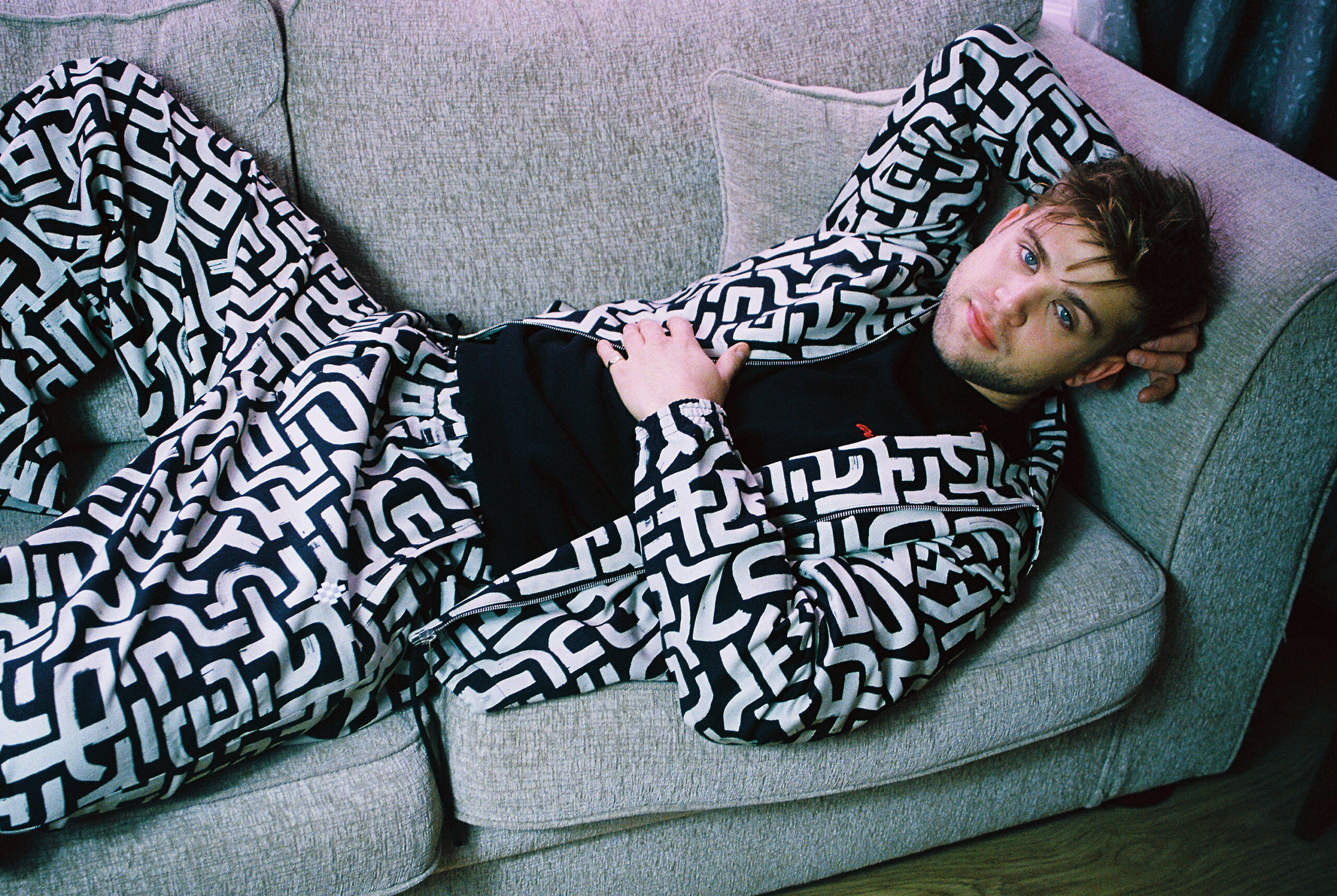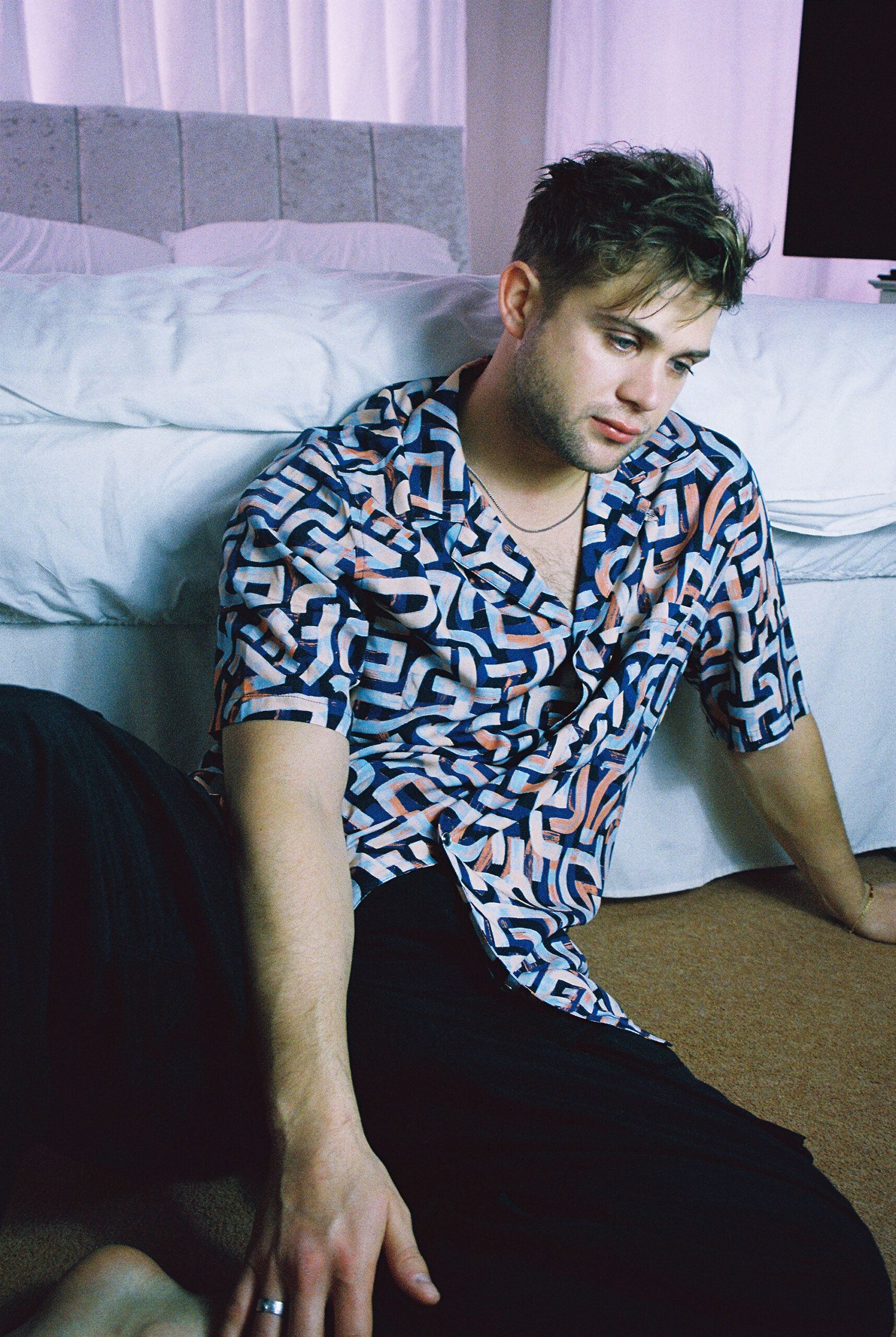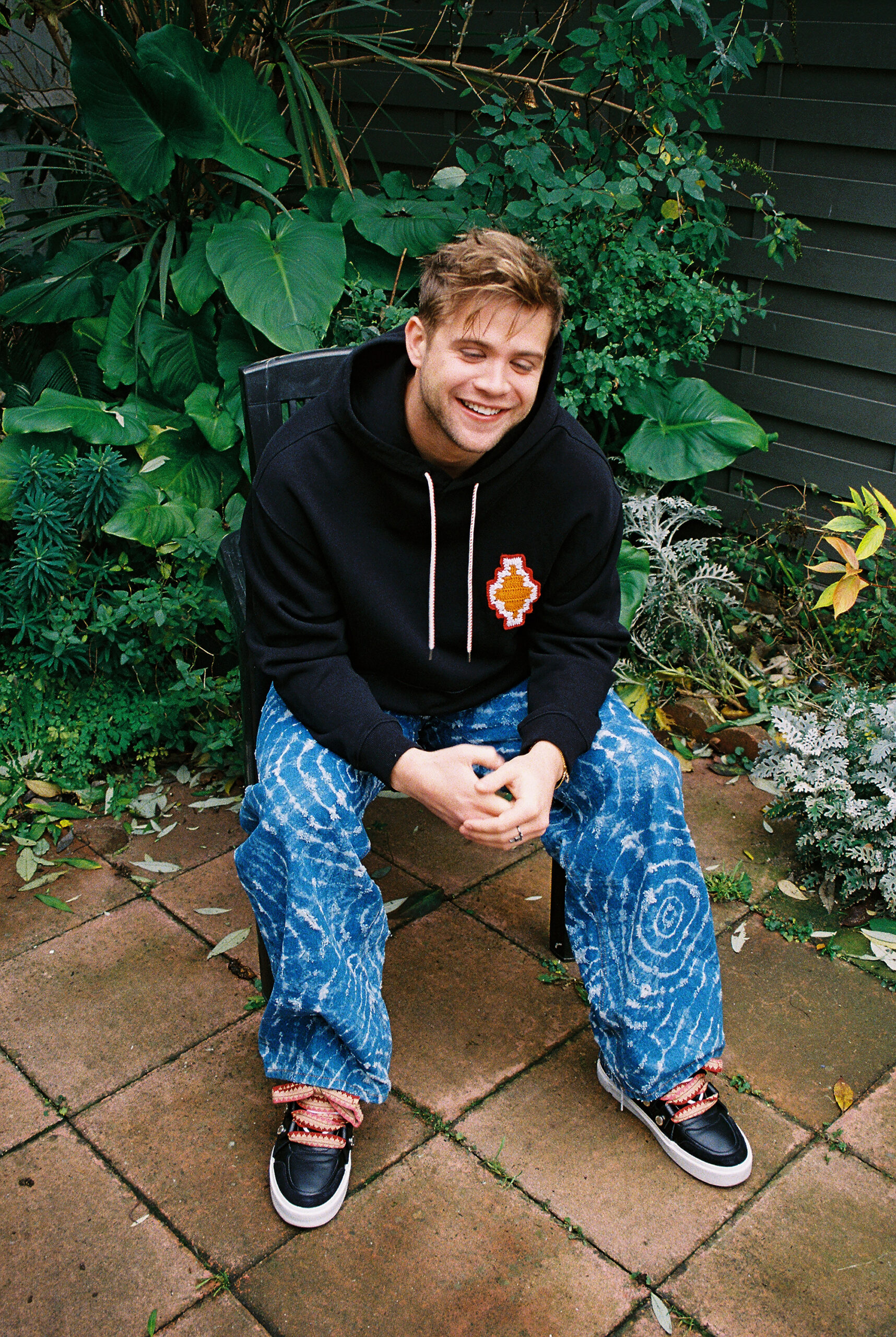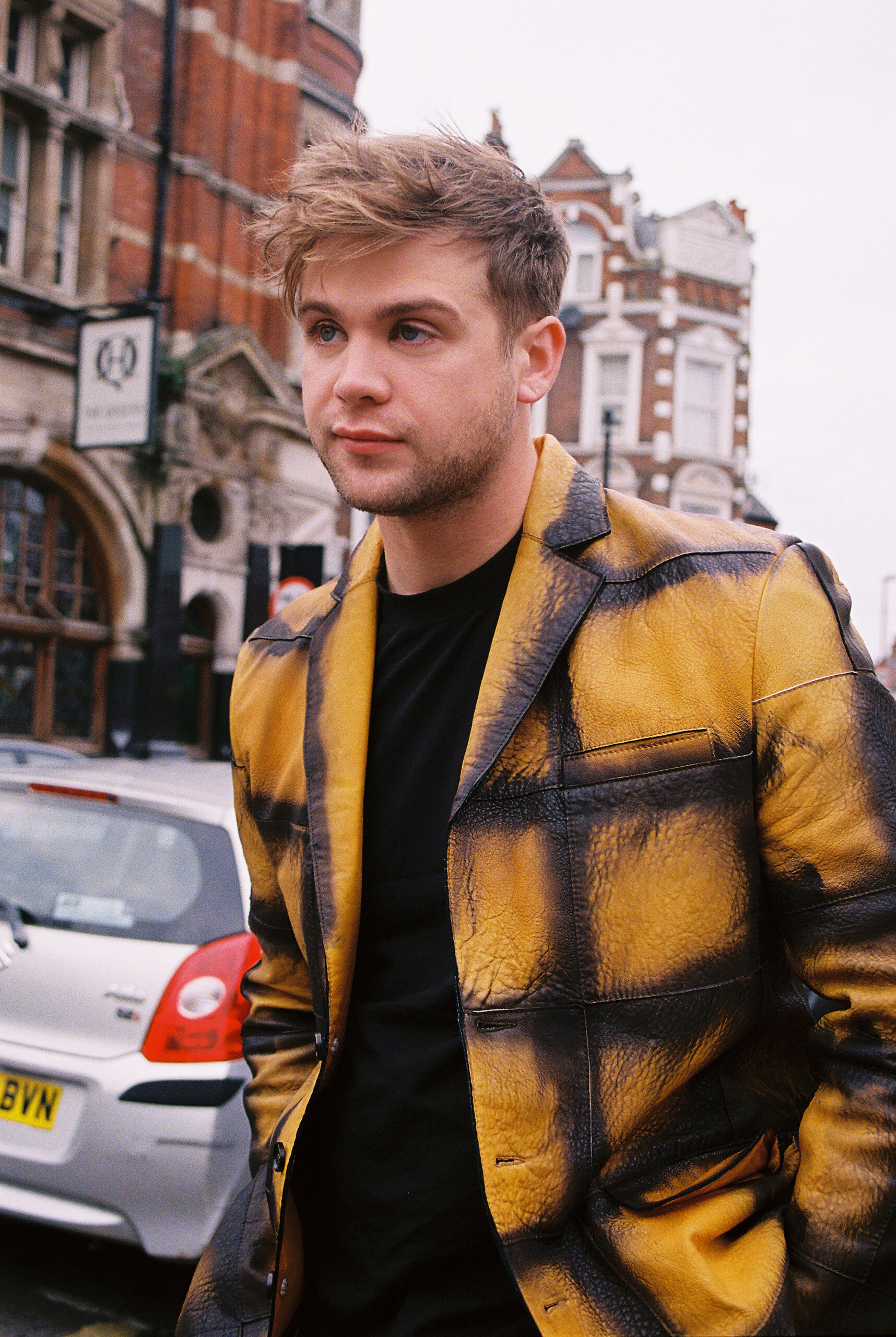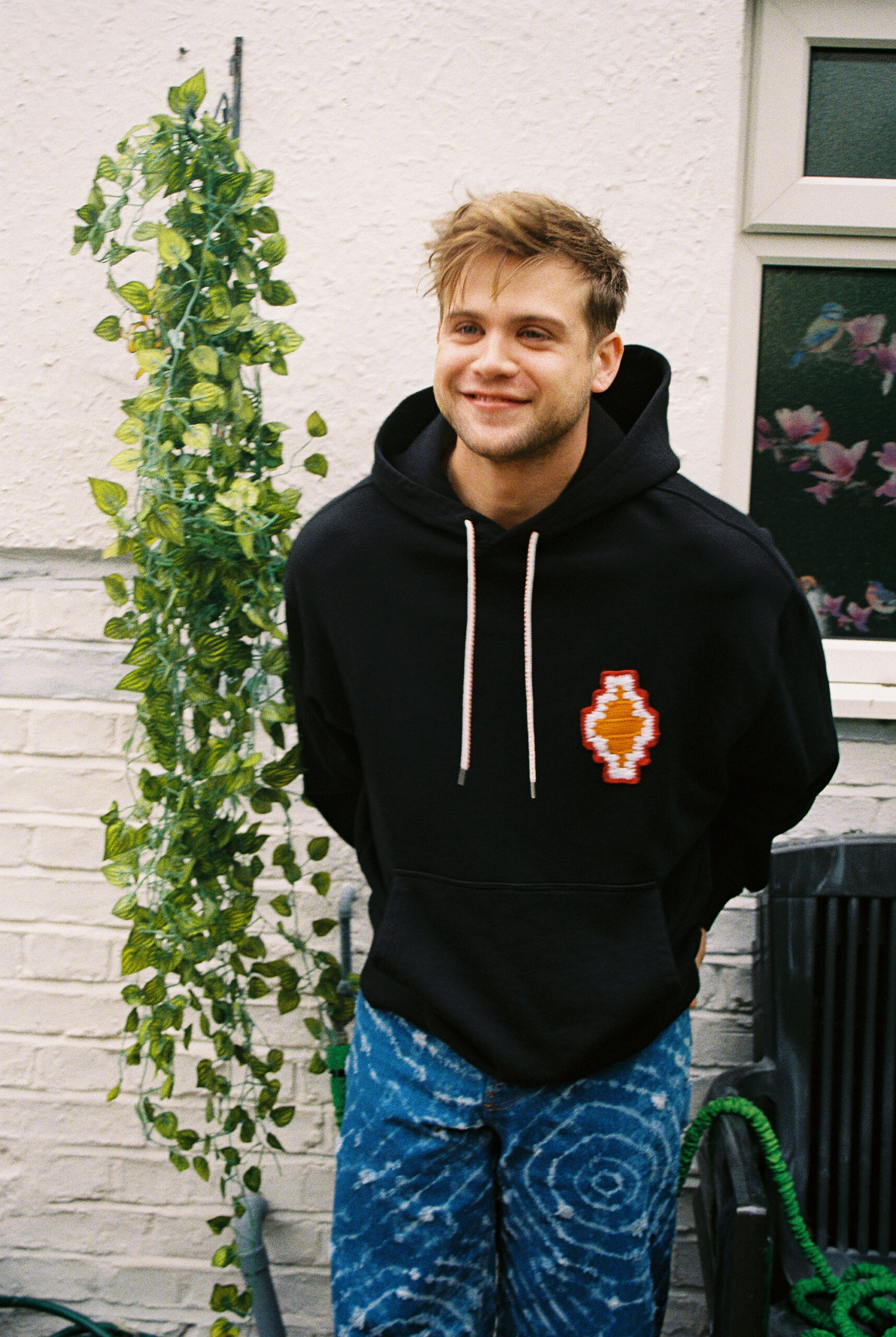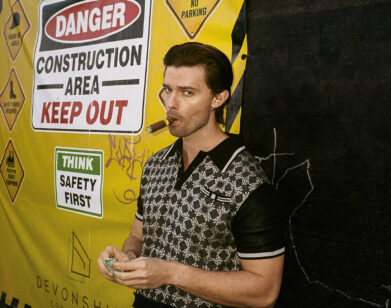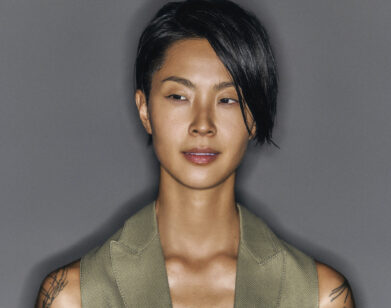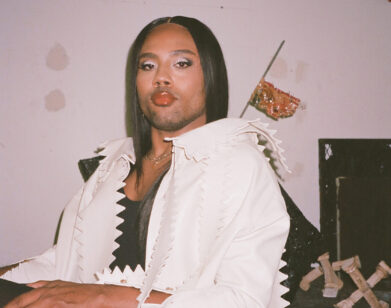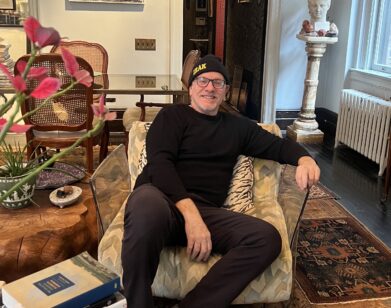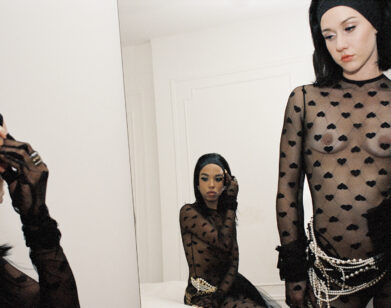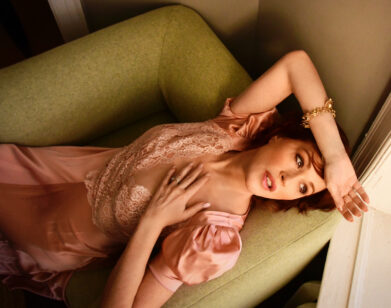Reunion
Leo Woodall and Tom Hollander Have a White Lotus Reunion
Leo Woodall made a splash as the strapping and slightly suspicious Jack on the second season of HBO’s The White Lotus. His raffish charm and boyish good looks masked darker motives, culminating in a bombshell scene with costar Tom Hollander that earned instant entry into the Shocking Twist Hall of Fame. Now, Leo is about to take on his first leading role in the latest adaptation of the David Nicholls bestseller One Day, which follows Dexter and Em (played by Ambika Mod) as their lives intersect over 20 years. To help him work through the pressures of being at the top of the call sheet is, you guessed it, Tom Hollander.
———
WEDNESDAY 10 AM JAN. 10, 2023 LONDON
TOM HOLLANDER: Now look, I’ve never interviewed anyone before, so I thought maybe we’d just have a chat. But I can’t just say, “How are you doing?” because that’s no good, so I’ve thought up some questions.
LEO WOODALL: Oh, god.
HOLLANDER: My first question is, why do you think you and I were the only people in The White Lotus not to get nominated for an Emmy?
WOODALL: [Laughs] It must be because the Brits are constantly stealing American parts, so they’re angry.
HOLLANDER: Brit backlash. The Brits have often been too rewarded for acting and for everything in the whole of history. For their empire. But there are two other members of the cast who are British who got awards. The only conclusion is that we were quite bad, even though we thought we were marvelous.
WOODALL: Maybe we were too smug.
HOLLANDER: We thought we were good at acting when actually we weren’t.
WOODALL: It could be that we had a very show-stealing scene, and so they thought, “Well, they’ve got enough attention.”
HOLLANDER: Do you think that, because we were so bad in it, it was quite lucky that you got One Day before The White Lotus had finished?
WOODALL: Well, to answer it genuinely, I think being in Lotus gave me an interesting, sexy edge going into those offices in central London, especially with my neck tattoo.
HOLLANDER: You had a neck tattoo in The White Lotus?
WOODALL: It said “cowabunga,” and I walked in and there was Nige [Watson] and Molly Manners and Rachel Sheridan, and they were gobsmacked that they hadn’t noticed it in my first self-tape. They didn’t think it was right for the character, so they panicked. And then it started to come off, because I was picking at it.
HOLLANDER: Did you have a wonderful time doing One Day?
WOODALL: I did. Especially having just done Lotus, which was a jammy holiday. It was a very different experience. It was a lot more pressurized and demanding, but I got to get my acting chops out and get settled on set.
HOLLANDER: You were in virtually every day, I imagine?
WOODALL: Yeah, pretty much. I did get a bit burnt out at times. I’d heard beforehand that the schedule was insane, but I didn’t quite know how to picture it until I was doing it. But it was such wonderful material that there was never a day where I thought, “Is this going to work?”
HOLLANDER: Have you seen it?
WOODALL: I have, yeah.
HOLLANDER: And you like it?
WOODALL: I like it.
HOLLANDER: Cool.
WOODALL: I don’t know if you felt this, but during Lotus, I knew that whatever I did, it didn’t really matter. The show was going to be amazing and it was going to be a hit.
HOLLANDER: Right.
WOODALL: But with One Day, it was not a new piece of writing, but a new show, and it’s hard to picture what it’s going to look like in the edit. My expectations were high, but it exceeded all of them.
HOLLANDER: Hope for the best, fear the worst, is what happens to me most of the time. Did you see the film version of One Day?
WOODALL: I watched it the day I got the first audition.
HOLLANDER: Oh gosh, that’s ballsy.
WOODALL: Well, I hadn’t read the book. When they’d given me a recall, I started reading the book once I thought, “Maybe I’ve got a shot at this.”I’ll be honest, though. I’m a very slow reader, so I started listening to it on Audible when I was traveling back from Sicily during the audition process, but I ran out of time by the last audition. I knew that the scenes I had to do were at the end of the story, so I did skip quite a few chapters and read the last few.
HOLLANDER: You didn’t miss the crucial event?
WOODALL: Didn’t miss the crucial event, thankfully. I would’ve been very confused and upset that I’d missed that. But yeah, it’s a really beautiful story and it’s quite easy to think that it’s really sad, because it is, but it’s a lot more moving than sad because there’s a wholesome finality about it.
HOLLANDER: Tell me about your costar Ambika [Mod]. I met her once. She’s very, very clever.
WOODALL: She’s very clever. She started her journey in standup comedy, so she’s quick and witty. She knew her character Emma like the back of her hand, years before the show had even been conceived of. She tells a funny story about how she turned down the audition multiple times because she loved the book and the character so much that she thought, “I don’t want to go near it.” And then she had an epiphany one night and woke up and thought, “What the fuck have I done?”
HOLLANDER: That’s such fantastic integrity that I don’t think I’ve ever even smelled. Interesting.
WOODALL: [Laughs] She’s great. We knew it was going to be a toughie and we needed to lean on each other, and we did, which I was grateful for. We said very early on, because we clicked early, “Can you imagine if we didn’t like each other or if we hated each other, even?” It would’ve been really awful and a very hard job.
HOLLANDER: Was there a moment where you had a real wobble?
WOODALL: I did have a couple of wobbles on One Day, but I remember having a wobble on The White Lotus and you were there for it.
HOLLANDER: What happened?
WOODALL: It was the big dinner scene.
HOLLANDER: Oh, yes. It was actually our first day, wasn’t it?
WOODALL: Yeah.
HOLLANDER: I think that was the first day we had to speak.
WOODALL: Yeah. We both had bits and I remember feeling very unconfident and defeated at the end of the day, and I think you clocked that a little bit. I got out of the corridor with the hotel rooms that were hair and makeup and costume, and you caught me and gave me a pep talk and said, “I thought you were great. Don’t beat yourself up about anything.” I tell a lot of people that story because it was a turning point for me. I thought it was such a generous, lovely thing for you to do as an actor I looked up to, and a veteran. It meant a lot.
HOLLANDER: I was probably feeling the same thing.
WOODALL: But in terms of wobbles on One Day, there were a couple of different ones. There was one where I had a wobble about the pressure. I had to go and do a costume change and I asked my standby costume person if I could just have 60 seconds in the trailer by myself. I had to take a big deep breath because it was all becoming a bit overwhelming and I didn’t know how to navigate being a lead on a big set. I started to get a bit overwhelmed and I quite literally couldn’t tie my own shoelace and spit my own gum out. It was very ebb and flow. There were periods where I was really on a roll and then periods where I had to really muster up some extra courage.
HOLLANDER: Yeah, it’s a marathon, playing a big lead in a multi-episodic thing that goes on for months and months. That’s real stamina. Obviously, anytime you say something like that as an actor, I immediately think stamina, like, “You’re fighting the Russians in Ukraine” sort of stamina, not the stamina of being an actor who gets picked up and driven, people play with his hair, and then he gets asked to say lines that other people have written. Is it that hard?
WOODALL: Yeah, I know. I think that’s part of the problem, though.
HOLLANDER: Oh, you mean the shame of that?
WOODALL: Yeah, it’s a hard thing to help. You feel tired or overwhelmed and then you go, “I don’t have a right to feel this way.” Then there’s this inner battle within yourself.
HOLLANDER: It’s strange, isn’t it?
WOODALL: Yeah.
HOLLANDER: It is. But there’s a legitimate pressure. Being in front of the camera is very intense. The amount of calories that you expend when you’re in front of the camera in a take is probably quite high, just because of the level of stress and concentration, knowing it needs to be perfect in that moment. But it’s silly to make comparisons with people in a war. I think it’s comparable to being a sports person. The level of adrenaline and concentration and the way that you need to get it right in a take is similar to the way that somebody doing a triple jump needs to get it right. Or one of those athletic sports that involve being on your own, competing against yourself in a short period of time, which involves preparation, build-up, and a burst of energy. And that is exhausting. But the wonderful thing is, if you’ve managed to do that and be in a good mood and be nice to be around, which I have no doubt you were, then it becomes quite a noble thing.
WOODALL: Well, there were definitely days when I wasn’t in a good mood. But luckily, and I’m sure you’ve found this, if the crew are a really good bunch of people, it makes a world of difference.
HOLLANDER: Yes. They’re all there to support you. Then you become a family, don’t you? You’re a family going on this odyssey together and they are there to give you everything you could possibly need. And sometimes you have to go, “No, I need a bit of space for a second to concentrate.” I noticed when I was producing, what a difference it made to the whole crew when the actors were happy to be there. The crew, if you think about it, spend all day looking at the lead actor in particular. They have to look down their lenses, they have to light them, dress them, prep them. You are the crew’s working environment.
WOODALL: That’s a very good point.
HOLLANDER: But sometimes being in that good mood is surprisingly hard, obviously if you get tired, or if you think you’ve been shit. The White Lotus was, in a way, completely dreamy, because none of us was playing the lead.
WOODALL: And I figured out that over five or six months in Sicily, I only worked about 20 days.
HOLLANDER: It was astonishingly uneconomical, wasn’t it?
WOODALL: Yeah. Going back to what you were saying about an athlete and delivering right in that moment, I found, being on set every day and playing the lead and doing it for such a long period of time, an alleviation of pressure, ironically, because I’m only here for this certain amount of time, so I’ve got a much shorter window to deliver.
HOLLANDER: That’s true, it is harder to play small parts. The lead gets more opportunities, more takes, more angles, and more time in the edit, because the editor has to make that performance work. So when you’re playing the lead, you don’t have to push. I mean, obviously there are certain dramatic moments which will require you to find something, but you can let the story happen to you, in a way. It’s much harder if you’re playing a supporting character who needs to make their presence felt.
WOODALL: That’s true. And you can get away with more shit performances. Especially having watched the whole of One Day, I noticed that if there was a moment on set where I was, like, “I wasn’t very good,” in the edit it’s harder to notice.
HOLLANDER: Yes.
WOODALL: There’s so much more around it.
HOLLANDER: The thing that you were obsessed about when you were doing it is not the thing that everybody will necessarily be seeing when they watch the scene. You’re always in the micro when you’re acting; you’re in the detail of the moment. But of course, what you are part of is much bigger than that. So what you’ve clearly experienced is, in the last two years, the clear difference between playing the lead and playing a supporting character. I bet you were brilliant. It’s very interesting that you were able to watch it all. You don’t have to throw up behind the sofa when you watch it?
WOODALL: I was extremely nervous before I’d seen episode one, because I didn’t know how I was going to feel about my performance, about the way I looked and all the stuff that is tedious to think about. Once I realized that the show had been made very well, I was pleased. I was able to trust that it was going to work, but I still had my sick bucket by my side just in case.
HOLLANDER: I find I have a visceral loathing of watching my own self, my body, my face, the back of my head, the way that I move around. I find that very challenging.
WOODALL: I find that with my voice.
HOLLANDER: Did you watch yourself on the monitor when you did it after each take?
WOODALL: No. That’s one thing I very much struggle with. I don’t want to think about the end product while I’m doing it because I don’t think it serves me.
HOLLANDER: But you might be able to look at a take and see some technical thing that you could improve. Like, “Oh, it would be better if I put the angle in my head there rather than there.”
WOODALL: Yeah, that is true. That’s one thing I feel grateful to have had the time to learn, is camera craft. I think I’ve learned how to grow quite close to the camera operator.
HOLLANDER: That’s a good relationship.
WOODALL: I’ve found it’s really important to feel safe and close to the person capturing you. It makes such a difference.
HOLLANDER: Well, I have every confidence that it will be brilliant. It’s such a brilliant story and I think the TV format actually helps in a way that was hard for the film to do justice to—the time that the story takes, the amount of years that it passes through. And an episodic TV show will be really good for that. And with you, with your lovely face, Leo, it’ll be great. And Ambika, whom I’ve only met briefly, but I know the two of you together, that’ll be a wonderful thing.
———
Grooming: Emma White Turle using Augustinus Bader Skincare at The Wall Group.

